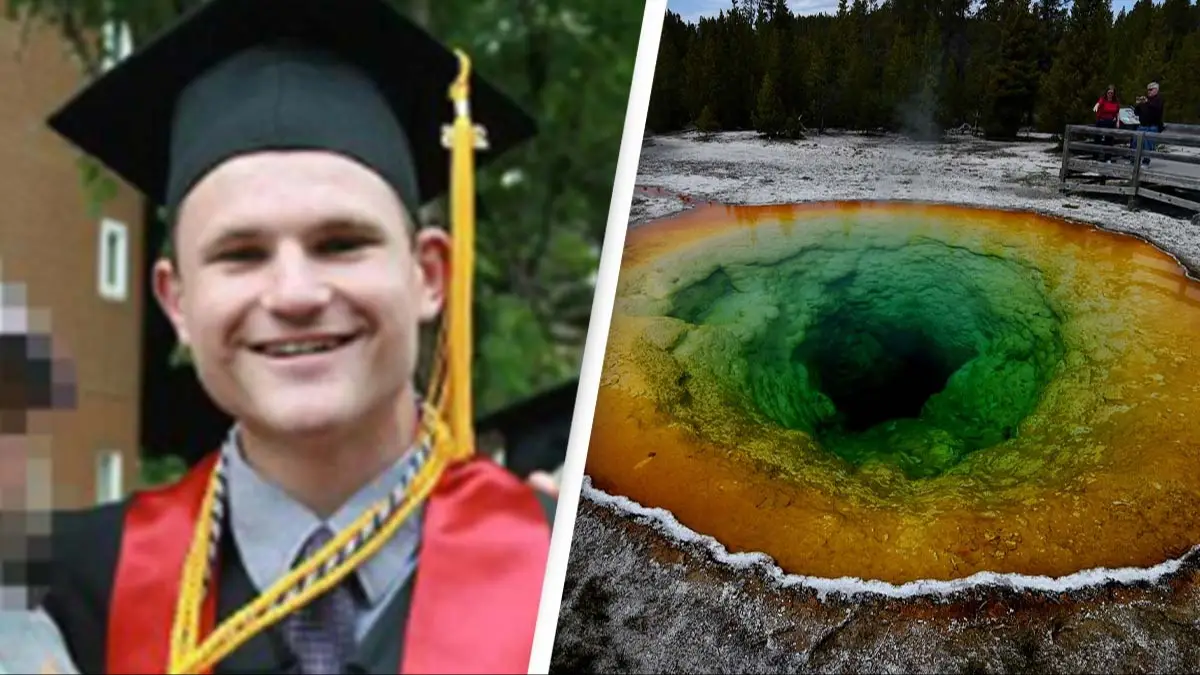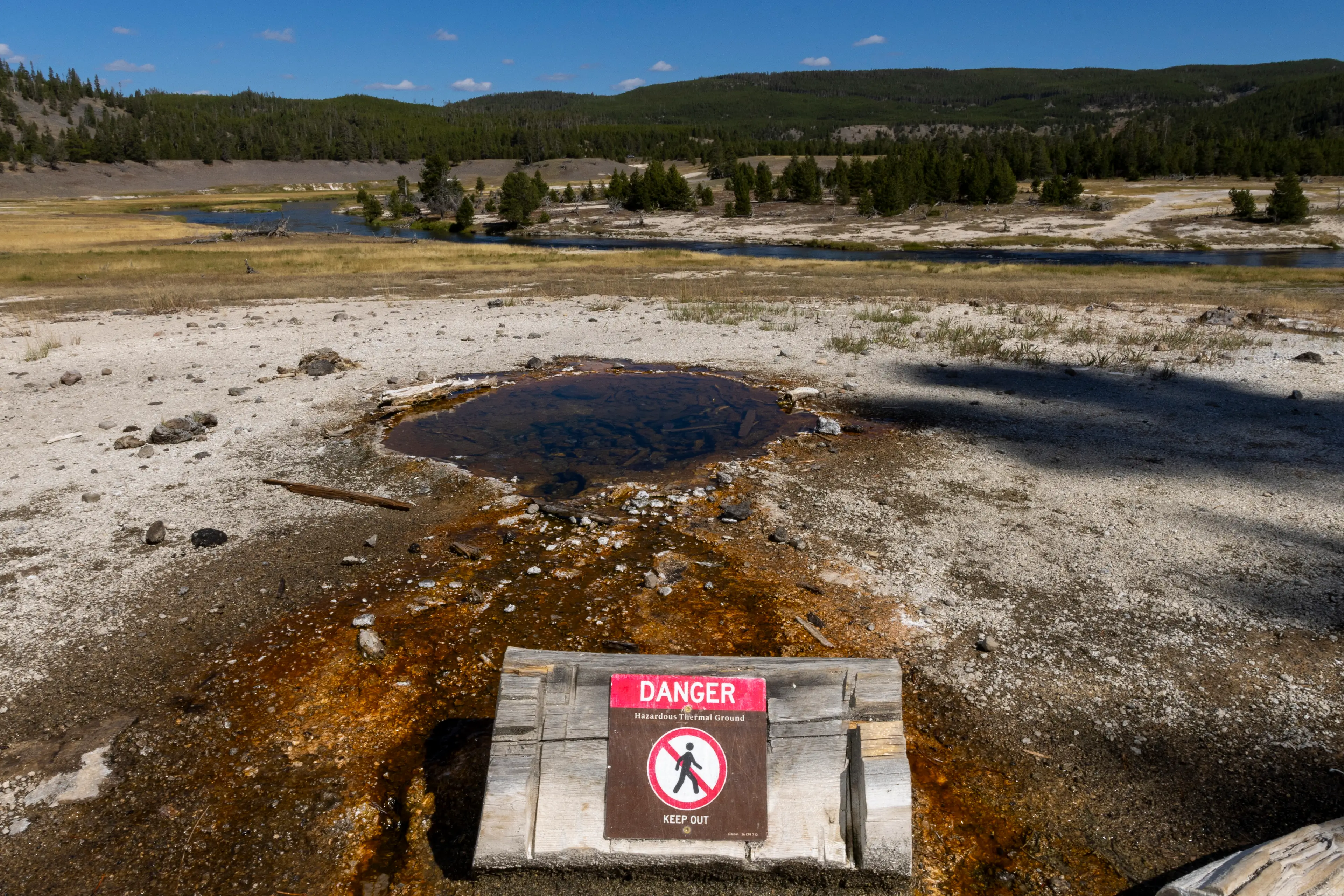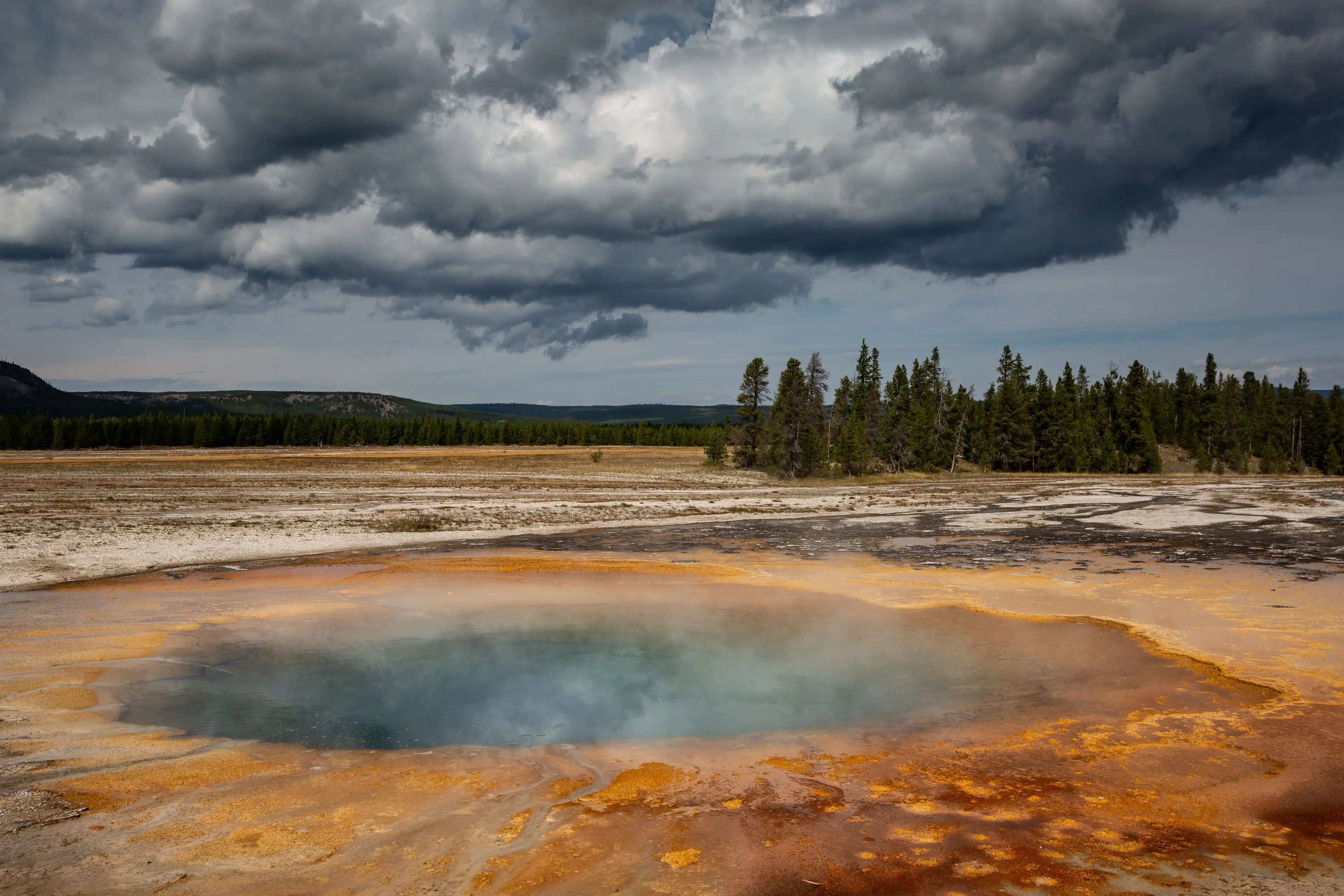
A man who had wanted to 'hot pot' completely dissolved after falling into a volcanic spring in Yellowstone.
Colin Scott had gone to the national park, which is famous for its volcanic activity, and had wanted to 'hot pot' - where you jump into a hot spring for a few seconds before quickly getting out.
Yellowstone has a huge amount of hot springs because it sits directly on top of a super-volcano.
The massive chamber of magma underneath the national park heats up water, which can bubble up close to the surface, and is also imbued with minerals from the volcano beneath.
Advert
But while volcanic minerals are often touted for their health benefits, swimming in one of these pools is highly dangerous, even for a second, as Colin tragically found.

The 23-year-old had been testing the water at a hot spring when he slipped, fell in, and was unable to get out again.
Tragically, Colin died in the pool as a result.
Park rangers were called to the scene of the horrifying incident, but were unable to immediately recover Colin's body from the water.
A thunderstorm was rolling in, leaving the rangers with no option but to retreat and take shelter, before returning the next day to recover Colin from the spring.
But when they returned Colin's body was nowhere to been seen, with just his sandals and wallet floating in the volcanic water.
Though it's possible that a wild animal could have come across and taken Colin's body, but the rangers suspected it was something else.
Deputy Chief Ranger Lorant Veress wrote a report of the incident, and explained that there was another terrifying reason that Colin's body had vanished.

"In a very short order, there was a significant amount of dissolving," he wrote.
The surface temperature of geysers and volcanic pools can be as high as 199F (93C), and this only gets hotter the further down you go closer to the magma.
Combined with the mass of volcanic chemicals in the water, this makes for an environment that is extremely hostile to the biological tissue of most organisms, including humans.
Only a few species of highly specialised bacteria are hardy enough to actually survive in the volcanic pools on a full-time basis.
Sadly, some 52 people have perished in Yellowstone since 2010, according to Outforia.
However, this is fewer than the fatalities in the Great Smoky Mountains in Tennessee, which saw 92 deaths.
